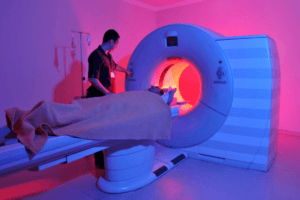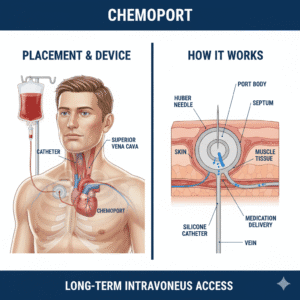
Morphine in cancer pain

Q1: What is Morphine?
A: Morphine is a strong pain reliever, known as an opioid, commonly used to manage moderate to severe pain, including cancer-related pain. It works by binding to specific receptors in the brain and spinal cord, blocking pain signals and reducing the sensation of pain.
Q2: How does Morphine help with cancer pain?
A: Cancer can cause significant pain due to the tumor pressing on bones, nerves, or other organs, as well as from treatments like surgery, chemotherapy, or radiation. Morphine helps manage this pain by effectively reducing the intensity of the pain signals sent to the brain, providing relief and improving the quality of life for cancer patients.
Q3: How is Morphine administered for cancer pain?
A: Morphine can be administered in various ways depending on the patient’s needs and the severity of the pain:
- Oral: Tablets or liquid form.
- Intravenous (IV): Directly into the bloodstream for fast relief.
- Subcutaneous: Injected under the skin.
- Epidural or Spinal: Delivered directly into the spinal fluid for severe pain. The dosage and method of administration are carefully tailored by the healthcare team to provide the most effective pain relief.
Q4: Is Morphine safe for cancer patients?
A: Yes, when used under medical supervision, morphine is safe and effective for managing cancer pain. Doctors carefully monitor dosage to balance effective pain relief with minimizing side effects. It’s important to follow the prescribed regimen to avoid complications.
Q5: What are the side effects of Morphine?
A: Common side effects of morphine include:
- Drowsiness or sedation
- Constipation: A very common side effect, often managed with laxatives.
- Nausea and vomiting
- Itching
- Dry mouth
- Dizziness
In some cases, patients may experience more serious side effects, such as difficulty breathing or confusion, especially if the dose is too high. It’s important to report any side effects to your healthcare provider, who can adjust your treatment as needed.
Q6: Can patients become addicted to Morphine?
A: The risk of addiction is low when morphine is used appropriately under medical supervision to manage cancer pain. It’s important to differentiate between physical dependence, which can occur with long-term use, and addiction, which involves compulsive drug-seeking behavior. Physical dependence is expected with long-term opioid use, but doctors can manage it by gradually reducing the dose if the medication is no longer needed.
Q7: What if Morphine isn’t enough to control my pain?
A: If morphine alone isn’t providing adequate pain relief, your doctor may adjust the dose, add other pain medications, or consider alternative treatments like nerve blocks or complementary therapies. The goal is always to ensure you’re as comfortable as possible.
Q8: How should I take Morphine to manage cancer pain?
A: It’s important to take morphine exactly as prescribed by your doctor. Do not increase the dose or frequency without consulting your healthcare provider. Regularly scheduled doses are often more effective at controlling pain than waiting until the pain becomes severe.
If you have more questions about using morphine for cancer pain, or if you experience any issues with your medication, yo may book an appointment with Dr Ruchir Bhandari for personalized advice and support to help manage your pain effectively.
Related Post


CyberKnife
August 6, 2024

Immunotherapy
August 7, 2024

MRI Linac
August 7, 2024

Gamma Knife
August 7, 2024

Cancer Screening
August 22, 2024
Gallery
Click below to book a clinic appointment
Ask More Questions Send Query On Email






